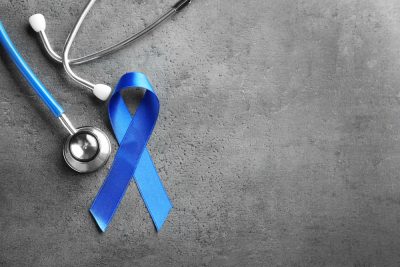Irritable bowel syndrome is a severe condition that has adverse effects on your large intestines, otherwise referred to as the colon.
At times, irritable bowel syndrome is confused for the same thing and harms a particular area of your body because they share similar symptoms. It is paramount to know the difference between these symptoms, just in case you experience any of them.
Signs of irritable bowel syndrome
There are common signs of irritable bowel symptoms which directly affect the movement of the bowels like:
- Diarrhea
- Constipation
Varieties of signs include:
- Bloating
- Mucus found in your stool
- Pain and aching of the abdominal
- Incomplete movements of the bowel
- Excessive gas
- Stress and some specific types of food are known to increase the development of irritable bowel syndrome.
Although it is a severe illness, signs of the condition can appear and disappear. However, these symptoms are not quite visible for some men and can be rectified with specific changes in their lifestyle.
Men who experience chronic signs would need medications to take care of the condition properly.
Diagnosing IBS
For the diagnosis of irritable bowel syndrome, there would be an inquiry about your medical history.
Things like:
- Your current medications
- Latest infections
- Of late stressful occasions
- Foods and substances that have an effect on your symptoms.
Your family history is also paramount. It entails:
- Colon cancer
- Celiac disease
- Inflammatory bowel disease.
Test to know if you are experiencing abdominal bloating would be carried out, and you might eventually not require any sort of additional analysis to diagnose irritable bowel syndrome. However, there are few tests that can strike out other types of illnesses.
They include:
Stool tests
These are conducted to search for traces of blood, infections, and various other types of illnesses.
Blood test
These are conducted to search for traces of anemia, infections, and various other types of digestive issues.
This diagnosis includes a system of signs, like abdominal pain and a few of the following symptoms:
- Pain in the abdominal tends to worsen or get better if there is a movement in the bowel.
- Frequent or fewer movements of the bowel
- The immediate difference in the outlook of your stool.
You are likely to get diagnosed with irritable bowel syndrome if:
- Your signs have been occurring for six months.
- You have regular issues in a week for the past three months.
What is colon cancer?
Colon cancer also referred to as colorectal cancer, is the type of cancer that begins in your colon or rectum. These organs are located in the lower part of the digestive system. Your colon is popularly called the large intestine, while your rectum is located at the bottom of the colon.
There are four stages of colorectal cancer, and they include:
 Stage 1
Stage 1
During this stage, the cancer is already situated in the lining of the rectum or the colon. However, it has not reached or infected the walls of your organ.
Stage 2
During this stage, the cancer is already situated in the walls of your organs but has not infected your tissues or lymph nodes.
Stage 3
During this stage, cancer has already affected the lymph nodes; however, it has not infected the other areas. At this stage, there is the involvement of up to two lymph nodes.
Stage 4
During this stage, cancer has affected your body’s various areas and organs, like your lungs and liver.
Symptoms of colorectal cancer
This is a type of condition which does not display symptoms in the beginning stages of its development.
However, if you experience signs of this condition, they are likely to include:
- Excess gas
- Pain and aches in the abdomen
- A significant change in your stool color
- Constipation
- Presence of blood in your stool
- Diarrhea
- Abdominal cramps
Once you begin to experience these symptoms, you must make a visit to your doctor for consultation.
Stage 3 or 4 symptoms
During the last stages of colon cancer, symptoms, and signs of the condition become more visible and prevalent.
There are specific symptoms which you might experience like:
- Excess tiredness or fatigue
- An unexpected loss of weight
- A feeling of an empty bowel
- Weakness and joint pain
- Vomiting and stooling
Once this disease spreads to various areas of your body, it is essential that you visit your doctor.
You might also develop symptoms like:
- Swelling of your feet and hands.
- Difficulties in breathing
- Fractures and injuries to the bone
- Dimmed vision
- Jaundice, a condition known as the yellow coloring of the skin and eyes.
- Severe headaches
Types of colon cancer
It is quite evident that the basis of colon cancer is clear. However, there are various types of this disease. The differences in these colorectal cancers occur as a result of multiple cells which can turn cancerous, and with where they are produced inclusive.
The most popular form of colorectal cancer begins from adenocarcinomas. If your therapist does not diagnose you of any other type of colon cancer, you are most likely to have this particular type of colon cancer.
Different unpopular types of colon cancers include carcinoids, sarcomas, lymphomas, and gastrointestinal stromal tumors.
What causes colon cancer?
There are varieties of reasons for the development of colon cancer.
These causes include:
Precancerous growths
Cells that are abnormally produced in the colon are known as polyps. If these polyps are not medically handled, they can result in cancerous cells, and they can be prevented through surgery.
Gene mutations
Colon cancer can occur as a result of a family trait. This happens when a parent passes it down to a child. This factor does not necessarily guarantee that you would develop colon cancer, but it can aid its development.
There are a few factors that can cause a high risk of developing cancerous cells. Of which age is inclusive. Once you age, you develop a high chance of developing this condition.
Diagnosing colon cancer
Just like irritable bowel syndrome, you would be asked to provide your medical history.
The inclusive risk factors are:
- Developing type 2 diabetes.
- Bad dieting
- Ulcerative colitis
- Crohn’s disease
- Lynch syndrome
Your doctor might carry out several other tests like blood tests and stool tests apart from the physical examination.
If your doctor suspects that you have cancer, you might undergo different types of analysis like:
- Imaging tests like CT scan of the rectum or colon.
- Tissue biopsy or colonoscopy.
A biopsy is carried out to check for colon cancer development while the imaging test is carried out to know if the disease is spreading.
The symptoms of irritable bowel syndrome versus the manifestation of colon cancer
It is well known that the symptoms of irritable bowel syndrome and colon cancer are very similar; however, some specific differences are noted.
Signs which are identical in both irritable bowel syndrome and colon cancer include:
 Pain in the abdomen or cramps
Pain in the abdomen or cramps- Diarrhea
- Sudden change in the habit of your bowel movements for more than minutes.
- Excessive gas
- Feeling of incomplete movements of your bowel.
However, there are a few differences between these two conditions.
The symptoms which are visible in colon cancer and not in irritable bowel syndrome include:
- Blood in stool
- Bleeding of the rectal
- Sudden loss of weight
- Fatigue or weakness
- Dark-colored stool
Can irritable bowel syndrome result in colon cancer?
Despite the discomfort and pain associated with irritable bowel syndrome, it does not result in digestive tract problems or other types of health conditions. Studies have shown that men who have irritable bowel syndrome do not risk developing cancer colon.
When to visit a doctor
You must visit your doctor if you notice changes in your abdominal bowel habits. The symptoms of irritable bowel syndrome are numerous and can indicate another underlying illness like colon cancer.
However, there are few signs which are indications that you should see your doctor immediately.
These signs include:
- Nausea and vomiting
- Bleeding of rectal
- Regular and frequent pain in the abdomen
- Excessive reduction in weight
If you develop irritable bowel syndrome, it does not necessarily mean that you would develop colon cancer, but this does not signify that you should be relaxed about these signs and symptoms.
You must tell your doctor about new signs like narrow and colored stool, sudden loss of weight, and rectal bleeding. It is essential to let your doctor know about your family’s medical history concerning colon cancer or irritable bowel syndrome.
Conclusion
You can manage irritable bowel syndrome by changing into a healthier and better lifestyle. Chronic cases of irritable bowel syndrome require specific medications for its treatment. However, irritable bowel syndrome does not mean that you would develop cold cancer.
The symptoms closely associated with colon cancer are not visible during the early stages of the disease. While your screen for colon cancer, there would be a detection of precancerous polyps, which would prevent the development of cancer.
It is essential to visit your doctor to get the right diagnosis of whether you have contracted colon cancer or irritable bowel syndrome.








COMMENTS